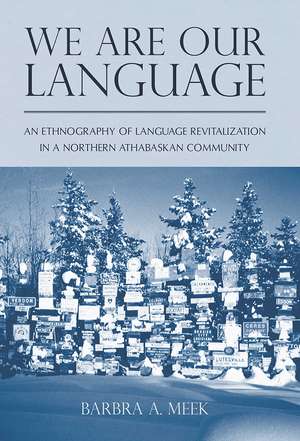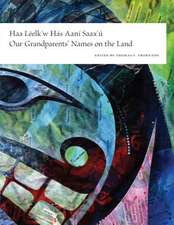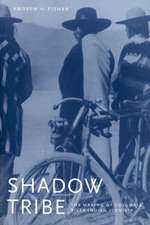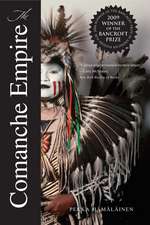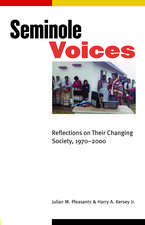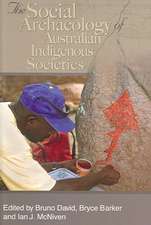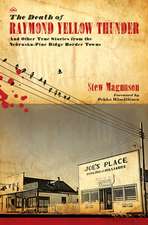We Are Our Language: An Ethnography of Language Revitalization in a Northern Athabaskan Community: First Peoples: New Directions in Indigenous Studies
Autor Barbra A. Meeken Limba Engleză Paperback – feb 2012
For many communities around the world, the revitalization or at least the preservation of an indigenous language is a pressing concern. Understanding the issue involves far more than compiling simple usage statistics or documenting the grammar of a tongue—it requires examining the social practices and philosophies that affect indigenous language survival.
In presenting the case of Kaska, an endangered language in an Athabascan community in the Yukon, Barbra A. Meek asserts that language revitalization requires more than just linguistic rehabilitation; it demands a social transformation. The process must mend rips and tears in the social fabric of the language community that result from an enduring colonial history focused on termination. These “disjunctures” include government policies conflicting with community goals, widely varying teaching methods and generational viewpoints, and even clashing ideologies within the language community.
This book provides a detailed investigation of language revitalization based on more than two years of active participation in local language renewal efforts. Each chapter focuses on a different dimension, such as spelling and expertise, conversation and social status, family practices, and bureaucratic involvement in local language choices. Each situation illustrates the balance between the desire for linguistic continuity and the reality of disruption.
We Are Our Language reveals the subtle ways in which different conceptions and practices—historical, material, and interactional—can variably affect the state of an indigenous language, and it offers a critical step toward redefining success and achieving revitalization.
In presenting the case of Kaska, an endangered language in an Athabascan community in the Yukon, Barbra A. Meek asserts that language revitalization requires more than just linguistic rehabilitation; it demands a social transformation. The process must mend rips and tears in the social fabric of the language community that result from an enduring colonial history focused on termination. These “disjunctures” include government policies conflicting with community goals, widely varying teaching methods and generational viewpoints, and even clashing ideologies within the language community.
This book provides a detailed investigation of language revitalization based on more than two years of active participation in local language renewal efforts. Each chapter focuses on a different dimension, such as spelling and expertise, conversation and social status, family practices, and bureaucratic involvement in local language choices. Each situation illustrates the balance between the desire for linguistic continuity and the reality of disruption.
We Are Our Language reveals the subtle ways in which different conceptions and practices—historical, material, and interactional—can variably affect the state of an indigenous language, and it offers a critical step toward redefining success and achieving revitalization.
Din seria First Peoples: New Directions in Indigenous Studies
-
 Preț: 192.30 lei
Preț: 192.30 lei -
 Preț: 185.46 lei
Preț: 185.46 lei -
 Preț: 218.89 lei
Preț: 218.89 lei -
 Preț: 185.98 lei
Preț: 185.98 lei -
 Preț: 104.95 lei
Preț: 104.95 lei -
 Preț: 110.08 lei
Preț: 110.08 lei -
 Preț: 224.69 lei
Preț: 224.69 lei -
 Preț: 222.99 lei
Preț: 222.99 lei -
 Preț: 200.29 lei
Preț: 200.29 lei -
 Preț: 287.45 lei
Preț: 287.45 lei -
 Preț: 215.80 lei
Preț: 215.80 lei -
 Preț: 293.42 lei
Preț: 293.42 lei -
 Preț: 197.38 lei
Preț: 197.38 lei - 26%
 Preț: 379.77 lei
Preț: 379.77 lei - 27%
 Preț: 412.49 lei
Preț: 412.49 lei - 26%
 Preț: 345.20 lei
Preț: 345.20 lei - 16%
 Preț: 355.93 lei
Preț: 355.93 lei -
 Preț: 125.09 lei
Preț: 125.09 lei - 21%
 Preț: 183.31 lei
Preț: 183.31 lei - 19%
 Preț: 267.58 lei
Preț: 267.58 lei - 29%
 Preț: 204.11 lei
Preț: 204.11 lei - 26%
 Preț: 379.28 lei
Preț: 379.28 lei - 14%
 Preț: 132.98 lei
Preț: 132.98 lei - 18%
 Preț: 101.72 lei
Preț: 101.72 lei - 25%
 Preț: 127.04 lei
Preț: 127.04 lei - 26%
 Preț: 126.23 lei
Preț: 126.23 lei
Preț: 237.93 lei
Nou
Puncte Express: 357
Preț estimativ în valută:
45.53€ • 49.44$ • 38.25£
45.53€ • 49.44$ • 38.25£
Carte tipărită la comandă
Livrare economică 23 aprilie-07 mai
Preluare comenzi: 021 569.72.76
Specificații
ISBN-13: 9780816514533
ISBN-10: 0816514534
Pagini: 232
Ilustrații: 13 photos, 5 tables
Dimensiuni: 152 x 229 x 18 mm
Greutate: 0.4 kg
Ediția:1
Editura: University of Arizona Press
Colecția University of Arizona Press
Seria First Peoples: New Directions in Indigenous Studies
ISBN-10: 0816514534
Pagini: 232
Ilustrații: 13 photos, 5 tables
Dimensiuni: 152 x 229 x 18 mm
Greutate: 0.4 kg
Ediția:1
Editura: University of Arizona Press
Colecția University of Arizona Press
Seria First Peoples: New Directions in Indigenous Studies
Notă biografică
Barbra A. Meek is an associate professor of anthropology and linguistics at the University of Michigan. In addition to conducting her research, she has helped organize and produce Kaska language workshops and teaching materials.
Cuprins
List of Illustrations
Preface
Acknowledgments
1 Ruptured: Kaska in Context
2 Endangered Languages and the Process of Language Revitalization
3 Growing Up Endangered
4 Manufacturing Legitimate Languages
5 “We Are Our Language”: The Political Discourses of Language Endangerment
6 From Revitalization to Socialization: Disjuncture and Beyond
Appendix A: List of Acronyms
Appendix B: Transcription Notation
Notes
References
Index
Preface
Acknowledgments
1 Ruptured: Kaska in Context
2 Endangered Languages and the Process of Language Revitalization
3 Growing Up Endangered
4 Manufacturing Legitimate Languages
5 “We Are Our Language”: The Political Discourses of Language Endangerment
6 From Revitalization to Socialization: Disjuncture and Beyond
Appendix A: List of Acronyms
Appendix B: Transcription Notation
Notes
References
Index
Recenzii
“A scholarly but personal reflection on language issues faced by the Kaska community in British Columbia. The author, Barbara A. Meek, uses language renewal efforts as a lens through which she pulls into focus the language challenges the community faces as well as some of the reasons those challenges exist. [Meek] also presents ideas for how to move forward.”—Spoken First
“This is an important book. Anyone involved in language revitalization would gain a lot by reading it. Original, informative, and well written.”—Leanne Hinton, co-author of How to Keep Your Language Alive: A Commonsense Approach to One-on-One Language Learning
“This is an important book. Anyone involved in language revitalization would gain a lot by reading it. Original, informative, and well written.”—Leanne Hinton, co-author of How to Keep Your Language Alive: A Commonsense Approach to One-on-One Language Learning
Descriere
We Are Our Language provides an investigation of language revitalization based on local language renewal efforts. This book reveals the subtle ways in which different conceptions and practices—historical, material, and interactional—can variably affect the state of an indigenous language, and it offers a critical step toward redefining success and achieving revitalization.
